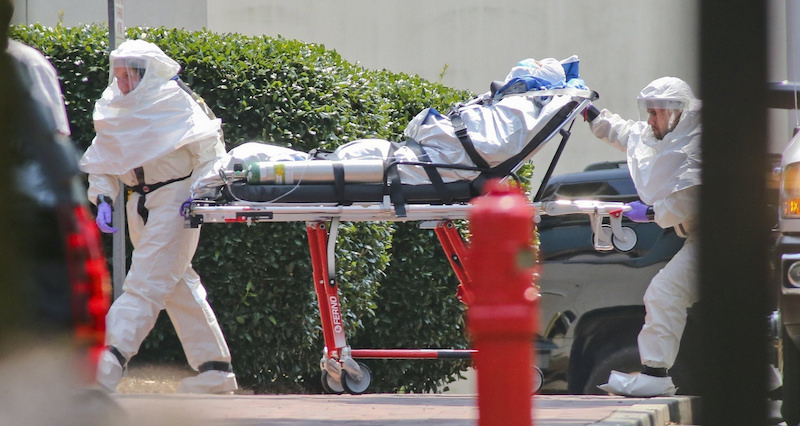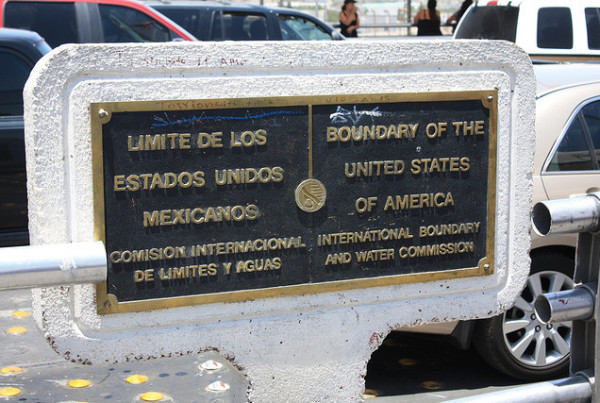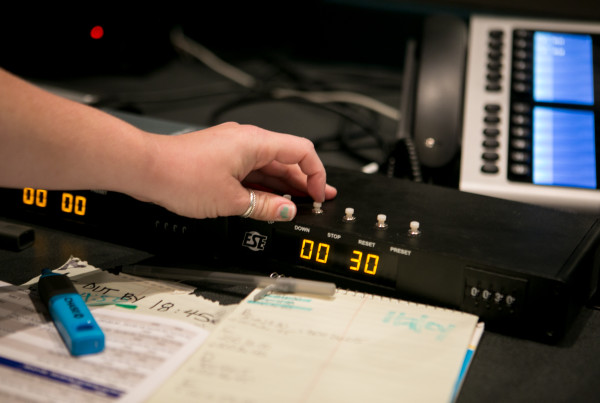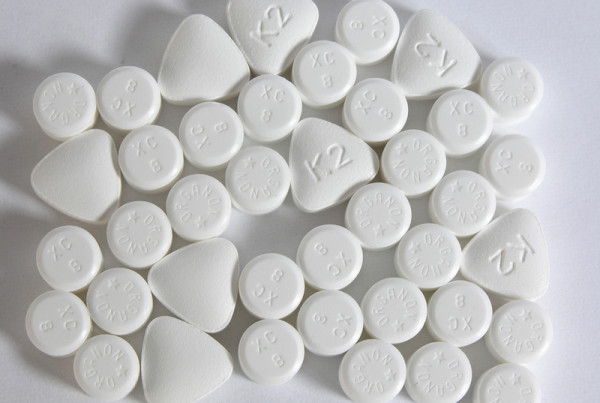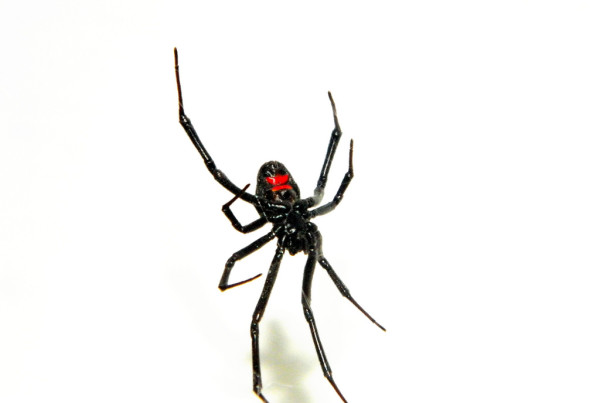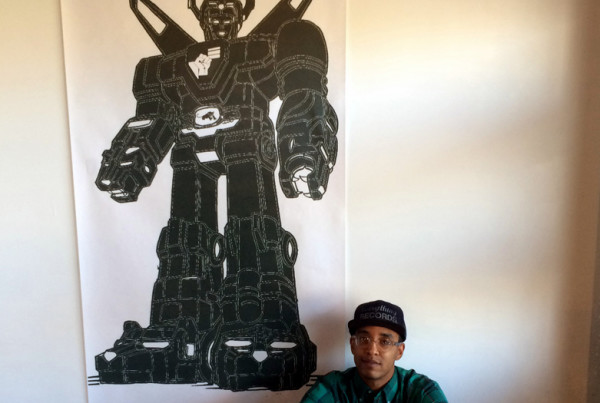This story originally appeared on KERA News.
The cleaning, the supplies, the overtime: How much did it cost Dallas-area taxpayers for all this?
Around $825,000, according to The Dallas Morning News.
A good chunk of that change went to three guys: Andrew Klein, Jon Schultz and Brad Smith of The Cleaning Guys.
They didn’t know it, but one phone call on Oct. 2 last year was about to change their lives.
On the other end of the line? The U.S. Department of Homeland Security.
The officials wanted to know if they’d be willing to clean ground zero of Ebola in the U.S. — the apartment in Vickery Meadow where Thomas Eric Duncan became sick. When they said yes, there was no manual. These guys would be the first cleanup crew in the country to walk into a home contaminated with the Ebola virus.
“We were approaching it as if it were the worst chemical you could walk into and the worst bio cleanup you could take care of,” Smith said.
Outfitted in chemical suits, full-face respirators, gloves and boots, more than a dozen men went in to the Ivy apartment building. And the worst part? Not the scene inside, Smith said, but outside: the public’s reaction.
“Not only business but personal lives were a little up in arms, due to young children that a lot of employees have, including myself,” Smith said. “Dealing with the schools, baseball teams not wanting to necessarily be around our kids.”
Business was the same way. Smith said some customers they’d been working with for more than a decade asked them not to come on their property for 30 days.
“It was sometimes hard to swallow due to the fact that it’s the financial burden on the company,” Smith said. “When you think you’re doing the right thing and others don’t understand it quite the way you do.”Business was the same way. Smith said some customers they’d been working with for more than a decade asked them not to come on their property for 30 days.
Just like with Presbyterian Hospital, business got back to normal. In fact, better than normal. The rugged-looking Cleaning Guys even ended up striking a pose for Vanity Fair magazine.
“We’re proud of what we did and we may have even gained more trust from our customers knowing that ‘Hey, these guys are able to handle that type of situation, surely they can handle ours,’” Smith said.
“I try to look at the bright side of everything. So far, it’s worked out well for us.”
EBOLA THE TOY AND EBOLA THE WEBSITE
It also worked out well for a toy company. Giant Microbes started selling out of its stuffed Ebola virus toy. It looks like a plush, brown worm — with eyes.
Andrew Klein is the president of Giant Microbes in Stamford, Connecticut.
“We take some liberties with the products,” he said. “Our giant microbes actually have eyes on them to make them more fun and playful even though these are serious microbes that can cause harm.”
The furry Ebola, which goes for $10 retail, had been an average seller, Klein said. Then, last fall, there was a huge spike in demand. Educators, museums, science nerds — they all wanted one.
Then, just like with the Beanie Babies, the Ebola craze ended.
“Our sale of the Ebola giant microbe remains above what it was earlier, but it’s gone back towards an average seller,” Klein said.
Selling a few thousand extra toys is nothing compared to what Jon Schultz made from the Ebola scare in the U.S.
“We got $50,000 in cash and $150,000 in stock,” Schultz said.
All for a website domain: Ebola.com.
Schultz, with Las Vegas-based Blue String Ventures, buys domains, like Ebola.com, when they’re dirt cheap, and sells them when interest soars. He doesn’t consider anything wrong with that.
“I certainly wasn’t happy about the outbreak,” Schultz said. “I don’t feel guilty because we didn’t do anything wrong. We didn’t lie to anyone, cheat anyone, we didn’t sell any snake oil products at the website, and we in fact provided a link to Doctors Without Borders that thousands of people saw, and I don’t know how many people made donations.”
FEAR DIES DOWN: ‘TIME HEALS EVERYTHING’
Of course, there were snake oil salesmen, peddling everything from Vitamin C and herbs to Nano Silver and snake venom. KERA reported last year that there aren’t any Ebola treatments approved by the U.S. Food and Drug Administration.
“It’s like storm chasing roofers, who go and try to defraud people after a big storm,” SMU law professor Nathan Cortez says. “Some of them may be making an honest mistake. Other companies are trying to rip people off.”
Then, as the fear begins to decline, so do sales of hand sanitizer, hazmat suits, and stuffed animals modeled after the Ebola virus.


